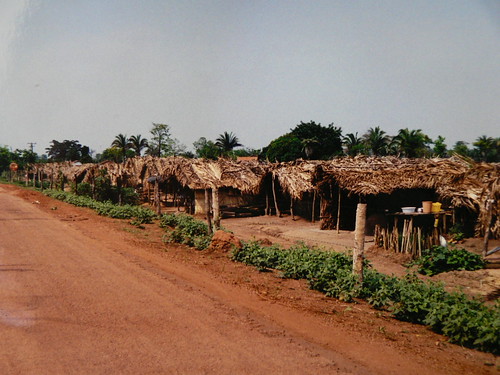
As the recession deepens, businesses will fold. They will no longer be needing the resources over which they have exerted control in an era when money determined what happened in the economy. We need to shift towards an economy that responds more to energy - and the energy of local people rather than fossil fuel energy.
The recession will offer many opportunities. As car-sales operations fold, forecourts and salesrooms will be unused; the failure of shops will make lots of premises available on the streets of our towns and cities; paddock-owners will have no use for their fields without the profits earned by businesspeople being spent on children's riding lessons. There are opportunities here for using these resources to rebuild the local economy. But how will we deal with the money issue?
Money is the one resources that will be less plentiful - but that offers no problem once you step outside the capitalist economic paradigm. Within a capitalist economy you can't do anything unless you have money; in a sustainable economy money is merely a means to facilitate transactions. Other resources should be not left idle and useful economic activity should not be prevented just because of a historical anomaly.
Several years ago, when I still lived in Aberystwyth, a jaunty anarchist named Bob Maycock led a group that 'liberated' a local defunct night-club and turned it into the People's Palace. For six months we did as we pleased there - and did not need to pay anybody for the privilege. After that, the long arm of the law ensured that, as before the people's arrival, the premises were boarded up and left useless once more.
This clearly identified the law as on the side of the owners and of property. If not, it would permit the use of unused resources by those with genuine need - whether for homes or premises to reskill themselves and provide their own food and clothing. This was not always the case: under Roman Law if land had been left idle for a certain number of years, landless peasants were permitted to make use of it. A similar law applies in Brazil today. In Europe we pay farmers to leave their land idle.
During Argentina's disastrous economic collapse in 2001, empty factories were 'reclaimed' by their workers. They could not tolerate the illogicality of productive resources sitting around, while people were unemployed, and others wanted to buy the goods the factories had produced. This setting right the inefficiencies caused by an economy where money dominated has been documented by Avi Lewis and Naomi Klein. It should provide inspiration for the next steps we will take to use our own recession to the advantage of local communities. Tweet
I've never understood the dynamics of loads of empty spaces where there could be something happening. Over the years, friends have often been shocked by the rents and business rates required to open something in a backstreet where half the shops are non-operational. The propertied classes have decided that rents and property values must be maintained and not be allowed to be seen slipping, otherwise why not just rent out the long-empty spaces for peanuts or just offer it free on short lets? Market for them, market schmarket for everyone else.
ReplyDelete